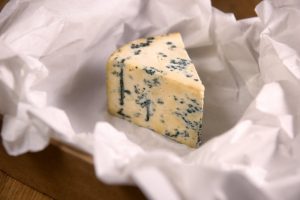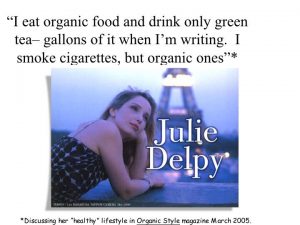After all the posturing and posing, Humphrey Errington, founder of Errington Cheese, now says he is no longer seeking a judicial review of the Food Standards Scotland’s (FSS) decision to impose a blanket ban on all his products after finding strains of Shiga toxin-producing E. coli.
 A child died after contracting the illness, which affected a total of 20 people in July this year. Food Standards Scotland (FSS) said Dunsyre Blue, made by Errington Cheese, was the “most likely cause”.
A child died after contracting the illness, which affected a total of 20 people in July this year. Food Standards Scotland (FSS) said Dunsyre Blue, made by Errington Cheese, was the “most likely cause”.
Mr Errington said the firm had also been offered a meeting with FSS to resolve their differences. “We have accepted that,” he said.
“It’s a major ‘back off’ off from them,” he added. “It’s a big, big step but it’s far from getting us back in the market. Our aim is get them to see that our cheese is not a risk to health.”
Pasteurization works.
Mr Errington always claimed there was “no evidence” linking its cheese to the outbreak and it accused the FSS of opposing the production of unpasteurised milk cheese.
After the legal challenge to the order was dropped, the watchdog confirmed it had issued a revised order in relation to Errington Cheese products. It stressed that the full product withdrawal remains in place as the cheeses are “regarded as a risk to health”.
A statement from the company said: “Errington Cheese Limited embarked upon a judicial review against Food Standards Scotland for two main reasons.
“Firstly, because we were clear that it was unlawful for FSS to have ordered the destruction of our cheeses on September 14 and secondly because we believed it was incumbent as a matter of fairness for FSS to share the evidence which they have been relying on with us.
“We are pleased to report that it has now been recognised that the destruction of our cheese was unwarranted and unnecessary and that FSS has finally started to share the evidence which they possess with us.”
In a statement, Food Standards Scotland confirmed that samples taken from different batches of different cheeses tested positive for E. coli O157 and for other strains of the bacteria.
FSS chief executive Geoff Ogle said: “This outbreak led to one fatality and 11 people being hospitalised. This was a major food incident where there was a significant risk to public health, with a tragic outcome. We have therefore decided to release the three versions of our risk assessment, each undertaken as new information became available, as well as our final risk management decision document.”
In a food safety information vacuum, anyone can say anything.
I understand there are uncertainties, legal implications, and a general fear that people don’t understand science, but if a regulator is going to shut down a business they need to make their case publicly – or others will do it for them (and they won’t like the result).
It’s a messy, modern world for regulators, but they, like scientists and everyone else, must be prepared to be held legally, politically and publicly accountable for their actions.
War is just a tweet away.
Everyone must be held accountable.
The actions described below should be incorporated into routine public health policy.
And by going public, the company backed off its ridiculous claims.
Geoff Ogle said a few days ago,, “Given the understandable level of interest and press coverage regarding the E. coli O157 outbreak linked to products from Errington Cheese Ltd, FSS has taken the decision that it is in the public interest to publish the information that we have used to inform our decision-making with regards to this incident.
“This outbreak led to one fatality and 11 people being hospitalised. This was a major food incident where there was a significant risk to public health, with a tragic outcome.
“We have therefore decided to release the , each undertaken as new information became available, as well as our final risk management decision document. Of particular relevance is the summary of the circumstances and information available to us at 14 September when FSS decided to undertake a full recall of all Errington Cheese Ltd products. The risk management document of 8 November 2016 sets out our conclusions at paragraphs 15-18 based on the risk assessments we have undertaken.
“I have seen a number of comments today and over the past weeks about this incident which FSS does not recognise nor accept. Reference to recent legal actions should not be about claiming any sort of victory given the consequences of the E. coli O157 outbreak. There is nothing to celebrate and this was never a vendetta against the rights to make, sell and consume cheese made from raw milk, nor against Errington Cheese Ltd. Given all that has happened it is sad to see this being portrayed as such in some quarters.
“Finally, I want to put on record my thanks to all FSS staff involved, and to our partner organisations who have supported our endeavours in managing this incident for their magnificent efforts. Their entire focus has been on protecting public health and making the right decisions based on the evidence we had. Scotland is fortunate to have such dedicated public servants.”
Go public.
War is just a tweet away.









